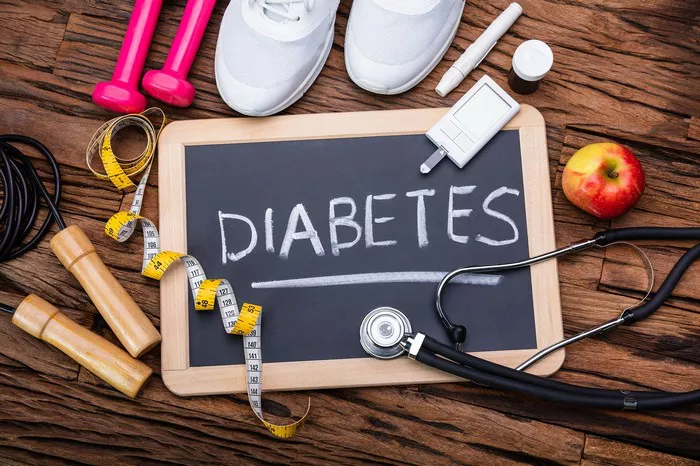Coffee is one of the world’s most popular beverages, cherished for its rich aroma, bold flavor, and energizing effects. For individuals managing diabetes, concerns may arise about the impact of coffee on blood sugar levels and overall health.
With conflicting information circulating about the potential benefits and risks of coffee consumption for individuals with diabetes, it can be challenging to navigate the debate.
In this comprehensive guide, we’ll explore the relationship between brewed coffee and diabetes, examining its potential effects on blood sugar, insulin sensitivity, and overall health.
Understanding Diabetes and Dietary Choices
Diabetes is a chronic condition characterized by elevated blood sugar levels, either due to insufficient insulin production (Type 1 diabetes) or the body’s inability to effectively use insulin (Type 2 diabetes). Managing diabetes involves careful monitoring of carbohydrate intake, blood sugar levels, and lifestyle factors such as diet, exercise, and medication.
For individuals with diabetes, making informed dietary choices is essential for maintaining stable blood sugar levels and preventing complications associated with the condition.
The Nutritional Profile of Brewed Coffee
Brewed coffee is a calorie-free beverage made by steeping roasted coffee beans in hot water. It contains virtually no carbohydrates, fats, or protein, making it a low-calorie and low-carbohydrate beverage.
However, the nutritional content of brewed coffee can vary depending on factors such as the type of coffee beans used, brewing method, and any additives or flavorings.
Potential Benefits of Brewed Coffee for Diabetes
While brewed coffee is primarily known for its stimulating effects due to its caffeine content, emerging research suggests that it may offer potential benefits for individuals with diabetes:
1. Improved Insulin Sensitivity:
Some studies have suggested that regular coffee consumption may be associated with improved insulin sensitivity, which is beneficial for individuals with Type 2 diabetes. Caffeine and other bioactive compounds found in coffee may help enhance insulin action and glucose metabolism, leading to better blood sugar control.
2. Antioxidant Properties:
Brewed coffee is rich in antioxidants, such as chlorogenic acid and caffeic acid, which have been shown to have protective effects against oxidative stress and inflammation. These antioxidants may help reduce the risk of chronic diseases associated with diabetes, such as cardiovascular disease and kidney disease.
3. Reduced Risk of Type 2 Diabetes:
Several observational studies have found an inverse association between coffee consumption and the risk of developing Type 2 diabetes. Regular coffee drinkers may have a lower risk of developing Type 2 diabetes compared to non-coffee drinkers, possibly due to the beneficial effects of coffee on insulin sensitivity and glucose metabolism.
4. Enhanced Cognitive Function:
Moderate coffee consumption has been linked to improved cognitive function, alertness, and mental performance, which can be beneficial for individuals with diabetes who may experience cognitive decline or impaired cognitive function due to the condition or its complications.
Considerations for Individuals with Diabetes
While brewed coffee may offer potential benefits for individuals with diabetes, it’s essential to consider several factors when incorporating it into a diabetes management plan:
1. Caffeine Sensitivity:
Some individuals with diabetes may be more sensitive to caffeine’s stimulating effects, which can lead to jitteriness, palpitations, or difficulty sleeping. Monitor your caffeine intake and limit consumption if you experience adverse effects.
2. Blood Sugar Response:
While brewed coffee itself does not contain carbohydrates or sugars, certain additives or flavorings such as sugar, cream, flavored syrups, or sweetened condensed milk can significantly impact blood sugar levels. Opt for unsweetened or minimally sweetened coffee beverages to avoid unnecessary spikes in blood sugar.
3. Individual Response:
Every individual with diabetes may respond differently to brewed coffee based on factors such as insulin sensitivity, medication regimen, and overall dietary habits. Monitor your blood sugar levels carefully when consuming brewed coffee and adjust your intake based on your individual response.
4. Hydration:
Coffee has diuretic properties, meaning it can increase urine production and potentially lead to dehydration if consumed in excess. Stay hydrated by drinking plenty of water throughout the day and limit coffee consumption to moderate amounts.
Practical Tips for Enjoying Brewed Coffee Responsibly
Here are some practical tips for individuals with diabetes to enjoy brewed coffee responsibly:
1. Choose Quality Beans:
Opt for high-quality, freshly roasted coffee beans to ensure the best flavor and aroma in your brewed coffee.
2. Monitor Portion Sizes:
Practice portion control when enjoying brewed coffee and avoid oversized servings or excessive consumption.
3. Limit Additives:
Minimize the use of additives such as sugar, cream, flavored syrups, or sweetened condensed milk in your coffee to keep calories and carbohydrates in check.
4. Experiment with Decaf:
If you’re sensitive to caffeine or prefer to limit your caffeine intake, consider trying decaffeinated brewed coffee as an alternative.
5. Stay Hydrated:
Balance your coffee consumption with adequate hydration by drinking water throughout the day to prevent dehydration.
Conclusion
In conclusion, brewed coffee can be a flavorful and enjoyable beverage for individuals with diabetes when consumed in moderation and as part of a balanced diet.
While brewed coffee itself is calorie-free and low in carbohydrates, it’s essential to be mindful of additives and flavorings that can impact blood sugar levels. By making informed choices and monitoring your individual response, you can enjoy the potential benefits of brewed coffee while supporting your overall health and well-being as someone managing diabetes.



























